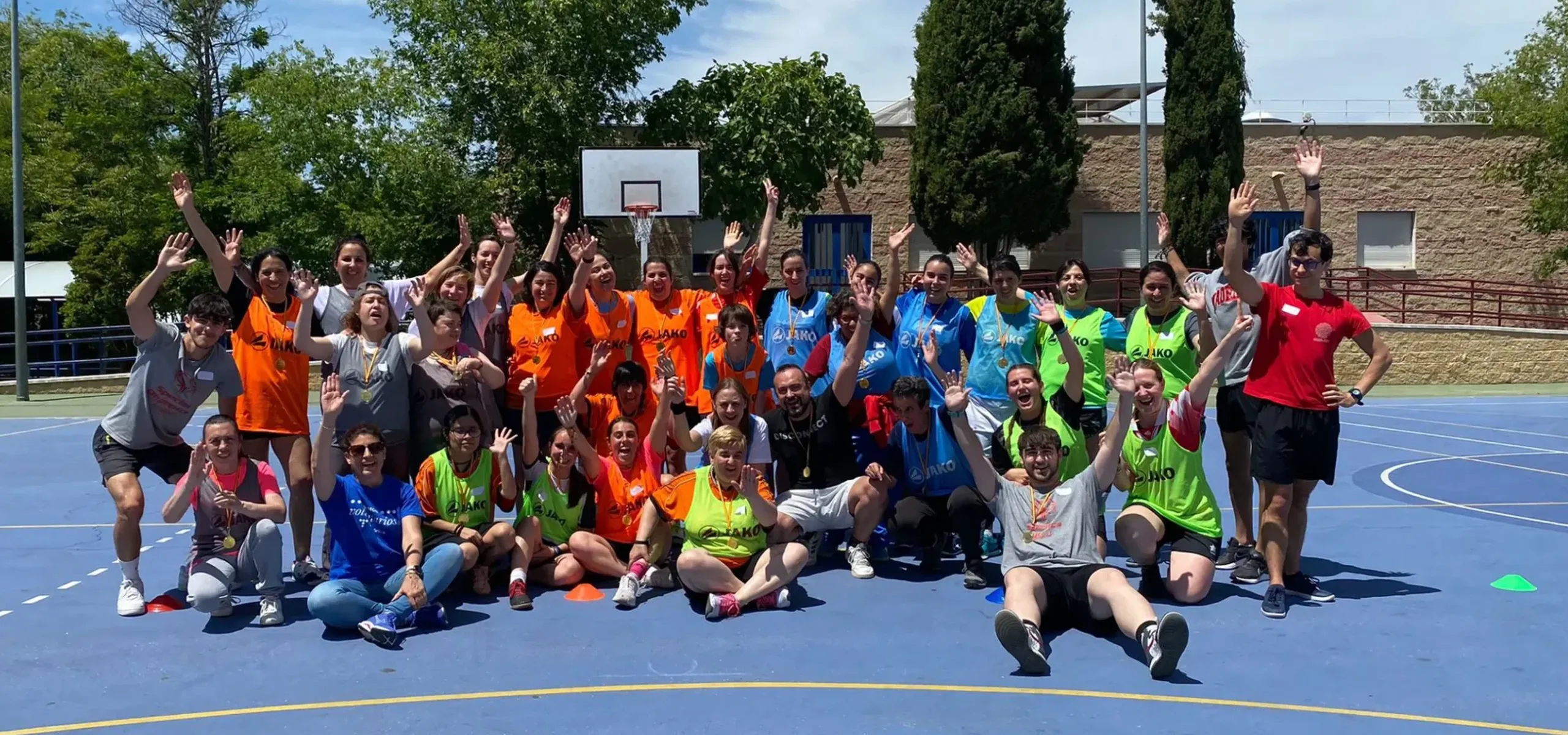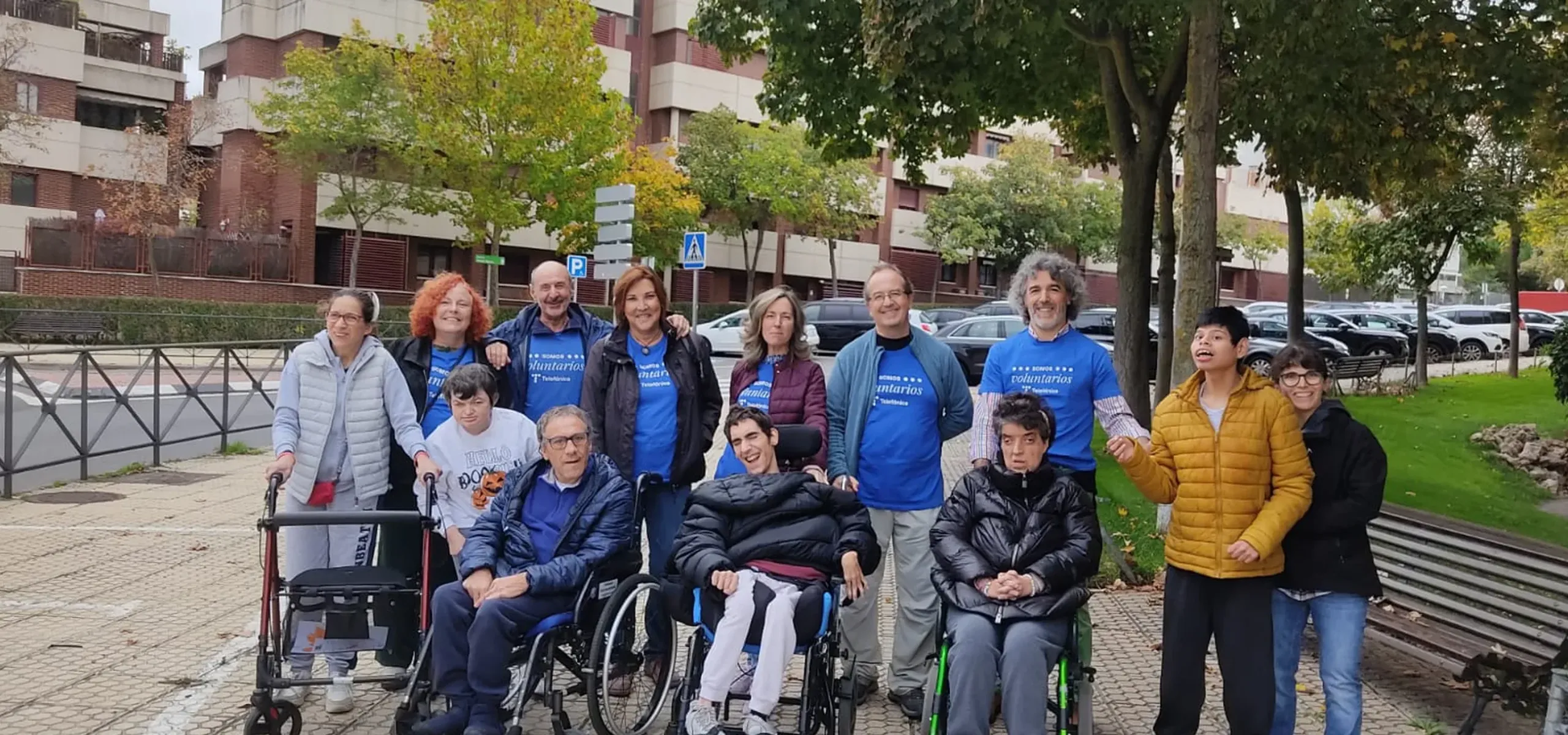Social Projects
Call for Volunteering Activities 2025
In the Call for Activities, the volunteers themselves are the ones in charge of designing project activities and leading them, organising other volunteers around them to achieve the established objectives.
Fundación Telefónica provides financial support and volunteers for the Company’s employees’ solidarity initiatives. In 2025, 115 initiatives were submitted to the Call, of which the following 24 have been selected.
Asociación Cultural de Ayuda a la Comunidad de San Egidio
The aim of the Asociación Cultural de Ayuda a la Comunidad de San Egidio is to provide care, shelter and integration to homeless people in Madrid.
Through the “Amigos de la Calle” initiative of the Community of Sant Egidio, the selected proposal seeks to offer hot meals, counselling, support, clean clothes and the possibility of access to toilets and showers to homeless people.
Mensajeros de la Paz
The Asociación Edad Dorada Mensajeros de la Paz aims to help homeless people, families and children at risk of exclusion.
The aim of the proposal is to help homeless people and families and minors at risk of exclusion through different activities: serving breakfasts in the Church of San Antón, dinner service in Robin Hood, recreational activities for children and adolescents in La Casita, participation in summer camps, among others.
Proyectos Sociales

Asociación A Favor de Personas con Discapacidad
The Asociación A Favor de Personas con Discapacidad en Tres Cantos AMI3 works to improve the quality of life of people with disabilities. The aim of the project is to contribute to the improvement of the quality of life of people with intellectual or developmental disabilities through 8 activities related to responsible and sustainable consumption, ecology, environment and circular economy.
Asociación Madrileña Para Ayuda del Recluso Abandonado (AMPARA)
The Asociación Madrileña Para Ayuda del Recluso Abandonado (AMPARA) seeks to provide leisure opportunities for children living with their mothers in prison. This proposal intends to give these children the possibility to engage in leisure activities outside the environment in which they find themselves.
Call for Volunteering Activities 2025

Asociación para la Integración Lingüística del Inmigrante en Madrid (ASILIM)
The Asociación para la Integración Lingüística del Inmigrante en Madrid (ASILIM) aims to put students from ASILIM’s Spanish courses in contact with volunteers who will help them to practice and improve their Spanish. The proposal will be carried out through different in-person and online activities in which volunteers will accompany migrants.
CEPRI
The CEPRI Association seeks to improve the quality of life of people with Autism Spectrum Disorder (ASD) and their families by promoting social inclusion and personal development. The aim of the proposal is to develop inclusive leisure activities as a means to facilitate and achieve full integration into the community.
Creática ONG
The aim of the project is the promotion of STEM (Science, Technology, Engineering and Mathematics) subjects in adolescents aged 13 to 16 years with special emphasis on people from vulnerable social contexts. To achieve this, meetings will be held in which volunteers will try to transmit an interest in science to children.
convocatoria-proyectos-sociales

Ecos do Sur
Asociación Ecos do Sur aims to support migrants, promoting participation, equal opportunities, and social and labour integration. The aim of the proposal is to improve the language and social skills of migrants through different activities.
Llambria
Asociación Llambria aims to help people at risk of social exclusion. The activity aims to prepare and distribute 1200 portions of paella in soup kitchens around Vallecas, Carabanchel and Tetuán so that people at risk of social exclusion can have access to a different and special meal.
Asociación Pasión por el Hombre – Bocatas
With this proposal, Asociación Pasión por el Hombre – Bocatas, seeks to facilitate the socio-occupational integration of immigrants and vulnerable people.
For this purpose, this association will hold digital training workshops, provide assistance and distribute food in Cañada Real and Ópera, to help people at risk of exclusion.
proyectos-sociales-telefonica

Asociación Sí Puedo – Colegio Los Álamos
The mission of the Asociación Sí Puedo – Colegio Los Álamos is to maximise the capacity of people with intellectual disabilities, ASD and/or behavioural disorders, promoting their personal development to the maximum.
This proposal seeks to carry out cultural and leisure activities together with people with intellectual disabilities, ASD and/or behavioural disorder aged between 6 and 22 years.
Asociación Zubietxe
Asociación Zubietxe aims to effectively address the problems of loneliness and social interaction faced by people in a situation of vulnerability or at risk of social exclusion.
The proposal seeks to develop leisure activities in order to promote social integration of vulnerable people and improve their well-being and quality of life.
Ecoherencia SCA seeks to bring nature and biodiversity closer to people with disabilities. The selected proposal consists of promoting inclusive and accessible activities that combine adapted hiking and environmental workshops, advocating for environmental awareness and citizen science.
Fundación José María de Llanos
Fundación José María de Llanos seeks to offer new possibilities for training, education and social and labour inclusion to young people at risk of social exclusion. The project aims to help young people at risk of social exclusion to discover their talent through training, sports, cultural, social, technological and communicative activities.
Fundación Balia
Fundación Balia por la Infancia strives for ensuring that children in situations of social exclusion and vulnerability can develop their potential and works hard to give them a chance to develop their talent. This project seeks to promote leisure activities for children in situations of social exclusion/vulnerability, discovering new places and bringing them closer to AI.
Fundación Apsuria
Fundación Apsuria is committed to helping and improving the quality of life of people with disabilities. The aim of the proposal is to promote the social and community integration of people with disabilities through different recreational, social, cultural and technological activities.
Fundación NUMEN
Fundación NUMEN’s mission is to improve the quality of life of people with paralysis and brain damage, and to assist their families. The purpose of this proposal is to improve the quality of life of people with cerebral palsy through 31 leisure, cultural and nature activities that stimulate their five senses.
Fundación Polibea
Fundación Polibea aims to help and support people with brain damage. Its objective is to improve the capacity and muscle strength of people with acquired brain injuries through 8 activities that combine Virtual Reality, Transcranial Electrical Stimulation and muscle strengthening with strength training.
Fundación San Juan del Castillo – Pueblos Unidos
Fundación San Juan del Castillo – Pueblos Unidos promotes the integration and inclusion of migrants at risk of exclusion.
The selected proposal seeks to offer support along with recreational and educational activities within the “Soy acogida” campaign and the “Baobab Programme”.
Fundación Síndrome de Down Madrid
Fundación Síndrome de Down Madrid aims to reduce the isolation of people with disabilities and improve their quality of life. The aim of the proposal is to carry out inclusive sports, leisure and cultural activities.
Fundación Tomillo
Fundación Tomillo seeks to offer impactful experiences to young people in vocational training, merging formal and non-formal education to help. The objective of the project is to provide enriching experiences for young individuals undergoing vocational training by integrating both formal and non-formal educational methodologies. The students will visit Distrito Telefónica, Campus 42, training sessions and workshops (home automation, robotics, programming, etc.), simulations of selection processes and motivational talks.
Hogar Sí – Fundación Rais
Hogar Sí – Fundación Rais’ objective is to create spaces for meeting and exchange between volunteers and homeless people.
The aim of the proposal is to promote the social integration of these people through 10 leisure activities such as nature outings, cooking competitions or cultural events.
NGO Rescate Internacional
The NGO Rescate Internacional aims to help and assist groups at risk of social exclusion in order to improve their quality of life. They promote labour inclusion through the development of digital skills in groups at risk of exclusion.
Reforesta
Asociación Reforesta seeks the conservation of nature as the promotion of sustainable development. The aim of the proposal is to improve the state of the Vereda de las Asperillas forest park in collaboration with disabled people of the Colmenar de Oreja Occupational Training, Guidance, and Job Placement Center (COFOIL de Colmenar de Oreja).
